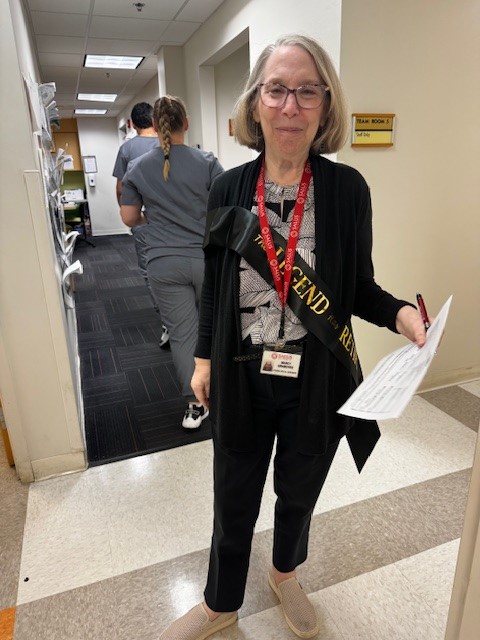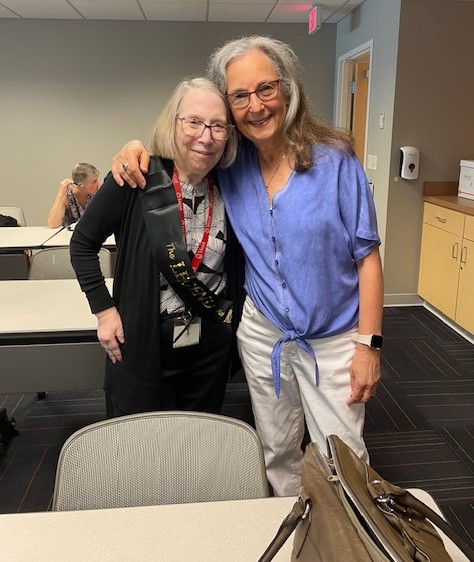Making an Impact in Patient Care for 42-Years
Marcy Graboyes was pursuing her master’s degree in Social Work at Temple University, when she found herself assigned to the William Feinbloom Vision Rehabilitation Center, housed at The Eye Institute (TEI), which is the clinical facility for the Pennsylvania College of Optometry (PCO).
 This placement would lead to a 42-year career at TEI, which recently came to an end when she decided to retire on June 30, 2024. “As fortune would have it, I fell in love with the field and I fell in love with the work,” she said. “The fact is that we have such an impact on the quality of life of people with visual impairments. So, by the end of my field placement, I was hooked.”
This placement would lead to a 42-year career at TEI, which recently came to an end when she decided to retire on June 30, 2024. “As fortune would have it, I fell in love with the field and I fell in love with the work,” she said. “The fact is that we have such an impact on the quality of life of people with visual impairments. So, by the end of my field placement, I was hooked.”
There was a spot open at PCO after she graduated from Temple and Graboyes jumped at the opportunity. She started at a time in the early 1980s when PCO had just received a grant to start the first Master of Science program in Low Vision Rehabilitation (LVR). “I came here to do clinical work, I didn’t have any aspirations to teach or do anything other than be a social worker in a clinical setting,” she said.
But with the onset of the new program and because she was a social worker, Graboyes was asked to teach a course in that curriculum. The LVR program was eventually joined by more master’s programs and called the Office of Graduate Studies, the precursor to what now is known as the Blindness and Low Vision Studies (BLVS) department at Salus University.
To that end, Graboyes was part of a team over the years — that included Dr. Richard Brilliant, Dr. Sarah Appel, Dr. Elise Ciner, Dr. Erin Kenny, Dr. Christin DeMoss and Dr. Chad Killen, who developed programs that still exist today.
 Those include; SPARC (Special Pediatric Assessment and Rehabilitation Center) program that was started in the early 1990s along with Drs. Appel and Ciner, a unique service that evaluates children from birth to 21 with visual impairment and any additional developmental disabilities. And, the Low Vision Mobile Clinic, started in the early 2000s and each school year, a team went out to a variety of educational sites where there were children with blindness and visual impairments and provided services to them within their educational communities.
Those include; SPARC (Special Pediatric Assessment and Rehabilitation Center) program that was started in the early 1990s along with Drs. Appel and Ciner, a unique service that evaluates children from birth to 21 with visual impairment and any additional developmental disabilities. And, the Low Vision Mobile Clinic, started in the early 2000s and each school year, a team went out to a variety of educational sites where there were children with blindness and visual impairments and provided services to them within their educational communities.
Graboyes also started a support group for people with low vision and visual impairment in the mid-1980s when she was supervising a graduate student from Temple who had an interest in starting one. “I’ve always worked with a phenomenal team and I have to say, the team approach is one of the things that has kept me here. That, and the value of social work,” she said. “The ability to be creative, to participate in lots of different activities. That all kept it fresh for me. When one thing maybe didn’t feel fresh, I could refocus on another area. I feel very fortunate that I was part of it from the beginning. I do think that was a very big factor in my longevity here.”